
Delivery and Ride Apps – Halachically App-roved?
Summer 2021 | Updated September 2024
With the advent of the latest apps, a whole new world of halachic scenarios has arisen.[1] These include shailos about using food delivery services, working for a food delivery or ride app, and even calling and using a ride service. These various situations will be addressed here.[2]
Ordering from Meal Delivery Apps
Meal delivery apps like Uber Eats,
Grubhub, DoorDash and Postmates have seen tremendous growth over the last few
years. For our discussion, we will use Uber Eats as our example, but the concerns
raised apply to the comparable apps.
A customer orders from a restaurant that
has contracted with Uber Eats. When it is ready, an Uber Eats driver picks it
up from the restaurant and delivers it to the customer. Here are some points to
consider when ordering from a kosher restaurant:
Is the food properly sealed?
Delivered food must be properly sealed.[3] Many restaurants do not seal […]

The Kosher Conversation Episode 5: Cholov Yisroel
Cholov Yisroel with Rabbi Tzvi Rosen
The Kosher Conversation returns from a Pesach hiatus.
In this episode we discuss how to make Cholov Yisroel milk in modern dairies, with special attention paid to Pride of the Farm.Curious about how to watch the milking of thousands of cows? Want to know who’s at the dairy on Shabbos and Yom Tov? Is Pride of the Farm really better than other milk? Wondering what could possibly go wrong?
All this and more on this week’s episode. Just press play.
As always comments, questions, and suggestions are welcome at [email protected]./html

On The Tip of Your Tongue
Spring 2021
“If there is any doubt, ask!” is a mantra that behooves any pulpit rabbi to convey to his kehila regarding kitchen mix-up issues. This is especially true concerning those shailos that involve the erroneous use of uncertified products whose only kashrus concern is that it contains mysterious “natural and artificial flavors”. However, all too often the food is thrown into the garbage before a shaila is asked. Surprising to most, when consumers in this predicament call into the STAR-K hotline, more often than not we can be the bearer of good news.
Before I delve into why, let me share a watershed story that will carry us to the essence of the matter
Where Is The Beef?
In April, 2001, a high profile article entitled, “Where’s the Beef? It Is In Your Fries!” appeared in India West, a popular newspaper and internet site for the North American […]

A Matter of Public Interest
“Oh, you need a loan to buy a new car? Check out Penn-Atlantic Credit Union. They’re practically giving money away!”
With interest rates of less than half of what is typically offered by a conventional bank, credit unions are a practical and popular choice for many consumers. Credit unions can give these low rates because they are non-profit and cooperatively owned. In order to borrow from a credit union, you must first be a member; every member is a partial owner, with both a financial stake and a vote in how it is run. This arrangement, however, presents a serious halachic concern: ribbis, the Torah prohibition against borrowing and lending of money with interest.
In truth, there is a similar ribbis concern in many bank loans. Mutual savings banks are structured similarly to credit unions; each depositor is a partial owner. The bank essentially acts as a shadchan between the many owners […]

A Glimpse into the System: Kosher Certification of Industrial Food
Since antediluvian times, when Tuval Kayin began fashioning metal implements (Breishis 4:22), developments in how items were manufactured progressed gradually with only incremental changes. About two-and-a-half centuries ago, with the advent of the Industrial Revolution, that trajectory was rapidly accelerated.1 Since then, continual technological advances have dramatically transformed manufacturing, to the point that modern methods barely resemble antiquated techniques. Food production is no exception.
Unless one was wealthy enough to enjoy spices transported over the Silk Road, pre-industrial food was locally sourced and made with familiar utensils. In stark contrast, much of what we eat today, whether the food itself or its sub-components (which are not necessarily disclosed on ingredient panels), is processed in distant factories on specialized equipment concealed from public view. Technicians wearing lab coats in laboratories serve as part of the contemporary food supply chain alongside the more traditional growers and pickers in the fields. Industrial methods are […]

Now You See It, Now You Don’t: A Kosher View of Refined Edible Oils
“שמן תורק שמך“ (Shir Hashirim Rabah 1:3) …”Your name is flowing like fine oil”. Shir Hashirim Rabah makes the following insightful observation. Shlomo Hamelech compares Bnei Yisroel to fine oil. Just as fine oil is extracted from its source through crushing and squeezing, so do the innate qualities of Bnei Yisroel emerge as a result of our collective challenges and travails. Similarly, just as oil serves as a glowing source of radiance that fills a room with shining light, so does Bnei Yisroel serve as a light to other nations through their stellar performance of Torah and mitzvos.
Oil is an incredibly remarkable and versatile product of Hashem’s creations and is not limited to olives, the quintessential source of shemen. Oil is found in a plethora of sources, and the means of oil extraction are varied. Moreover, there are remarkable halachic ramifications with various oil extractions. Let’s explore the wondrous world of […]

Kashering Your Countertops Properly
Countertops that are made of solid stone, like granite or marble are able to be Kashered for Pesach. Other synthetic or composite materials (including granite composite) can not be Kashered and should be covered.[1]
Granite or marble countertops can only be koshered using Eruy Roschin, which means pouring boiling water from a pot that has been heated on a fire.[2] Actual water[3] is needed to kasher, not steam.[4] The concept of using a steam machine is that it will boil water and spray that water through a hose creating a neat and efficient method to accomplish Eruy Roschin. However, if the steamer only produces steam and not actual boiling water, it can not be used to kasher, even if the steam is hotter than 212 F.[5] STAR-K has tested many models of steamers available commercially and have found that almost all of them will only produce hot […]

Notes from the STAR-K Bais Medrash Govoha Halacha Chaburah
The following article is based on an actual in depth and detailed ‘limud‘ that the STAR-K Kollel Chabura conducted during the past zman.
Scenario #1: It’s the afternoon of the second day of Pesach; your house is a hurricane – dishes are piled up to the ceiling, stains are all over the tablecloths, the floors are sticky and you need some serious help. You have a live-in maid. The trouble is, you’re very uncertain as to what you can ask her to do and what is and isn’t halachically permissible. Can she be asked to run the dishwasher, wash the floor or take out the garbage?
Scenario #2: It’s the afternoon of the second day of Pesach; your house is a hurricane – dishes are piled up to the ceiling, stains are all over the tablecloths, the floors are sticky and you need some […]
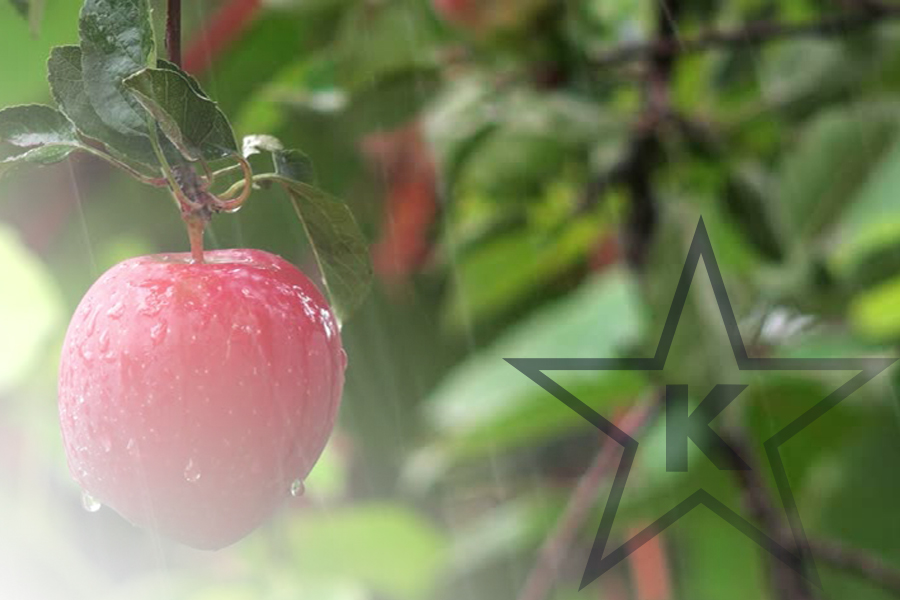
K’Tapuach B’Atzei HaYa’ar Like an Apple in the Orchard
The Talmud1 records a very interesting exchange between two Amoraim, Rava and Rav Pappa. Rava raised a legal query which Rav Pappa heartily answered. To that response, Rava exclaimed, “Sadnai!” Rashi gives two explanations to the approbation, Sadnai. One explanation is that Rava’s exclamation attests to Rav Pappa’s keen scholarship. When Rava extolled Rav Pappa’s scholarship, he implied that his insight was so great that Rav Pappa was able to uncover the underlying “secrets” (“sode”) of Torah. Another explanation of the term “sadnai” is a testimonial to Rav Pappa’s expertise as an expert brewer. He knew the mystery of creating a successful brew of beer.
Which variety of beer was Rav Pappa brewing? The Gemara in Pesachim,2 where this exchange between Rava and Rav Pappa was also recorded, tells us that he was brewing date beer. Brewing beer was popular in Talmudic and pre-Talmudic times. As far back as […]

A 25 Year Retrospective on Kashrus Kurrents
Approximately twenty-five years ago shortly before “Pesach” 5738 Mr. A. J. Levin, a vice president of the Orthodox Jewish Council, began publishing Kashrus Kurrents. In that first issue, printed on the familiar yellow paper with the blue Kashrus Kurrents logo, it was deemed necessary to advise the Baltimore community that they cannot rely on labels or advertisements that merely states ‘Kosher for Passover’. From that same issue we learned that the fledgling Star-K organization had just inaugurated its kosher hot-line whereby one could get accurate kashrus information Monday through Thursday between the hours of 10 a.m. to 12 p.m.
A most welcome and popular feature was a list of items that did not require special Passover certification. Included were specific brands of sugar and cocoa as well as a number of commonly used over the counter medications. Compiling the list required substantial research by volunteers […]

Star-K’s New Kashrus Training Program A Huge Success
August 2004
How can you learn to deal with the challenges of supervising a first-class hotel’s kosher kitchen which is next to its non-kosher kitchen? Where does one find the opportunity to tour a flavor plant to better understand the kosher manufacturing process? Who will train you to find the less obvious thrips and aphids when checking a restaurant’s vegetables? What will give you the preparation to administer – or perhaps, pioneer – a communal kosher certification agency?
Star-K Kosher Certification recently provided the platform for these unique learning opportunities and more. In its new complimentary certificate program, Star-K’s Kashrus Training Program allowed Kollel yungerleit of Yeshivas Ner Yisrael to experience the field of kosher supervision first hand. Held July 12-16, at Star-K’s offices in Baltimore, Maryland, the five day intensive seminar was limited to 25 students who have studied Yorah Deah.
Ner Yisrael Kollel fellow Moshe Schuchman’s sentiments […]
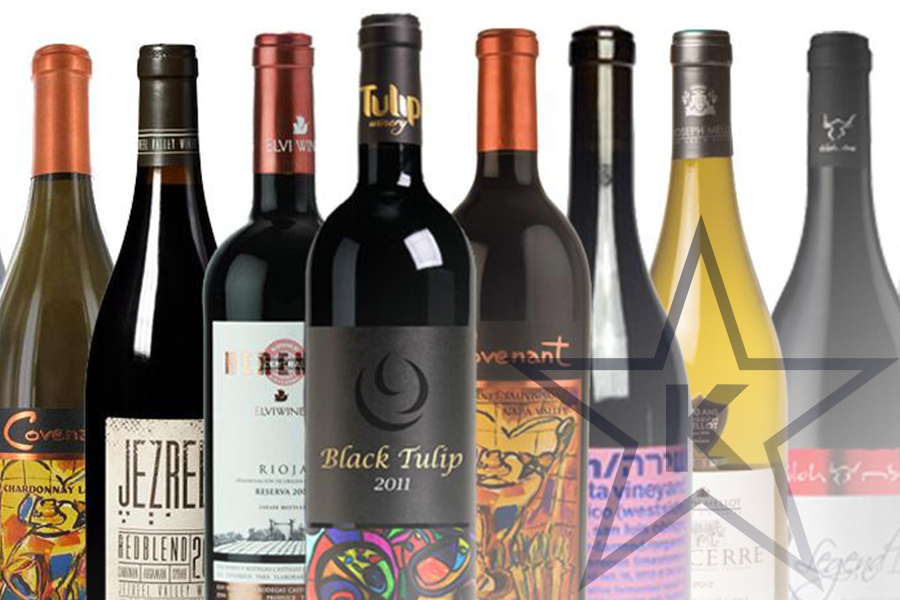
Kosher Wine Comes of Age
Throughout the ages, alcohol has always played a vital role in historical and religious observance. Dovid Hamelech’s declaration ויין ישמח לבב אנוש,1 “Wine will gladden the hearts of humanity,” certainly has borne itself out in modern history. Wine accompanies happy occasions in almost every society known to man. Chazal declare אין שמחה אלא ביין.2
When I was growing up, there weren’t many choices when it came to kosher wine. When my parents bought our childhood home, my father was thrilled to find that it came with a wine cellar. He was then faced with the formidable challenge of finding kosher wine good enough to bother storing. I remember a time when there were only two wines from Eretz Yisroel available, both from Carmel Chateau Rishon: Vin Rouge and Vin Blanc; basically, the whole range was sweet red and white! Domestic wines were even more limited; while there were a few […]
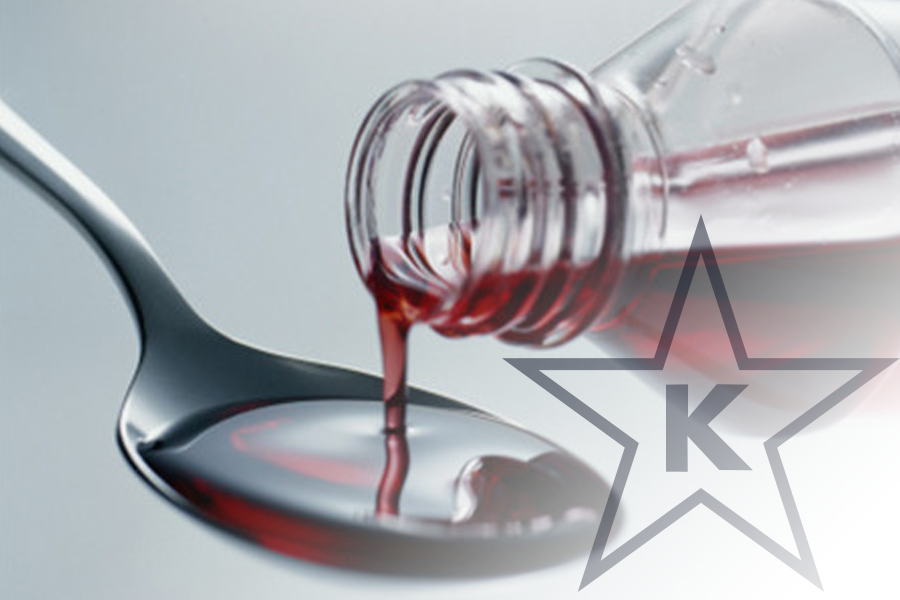
Just a Spoonful of Glycerin Makes the Medicine Go Down
In the world of food ingredients, there is no ingredient as versatile as glycerin. In the world of kosher ingredient sensitivity, there is no kosher-sensitive ingredient that compares to glycerin. Glycerin’s ingredient versatility is not limited to food grade applications. Glycerin is used extensively as a major component in the pharmaceutical and cosmetics industries, as well.
Glycerin is known as a humectant. That means that glycerin helps retain moisture. Therefore, glycerin is a perfect ingredient for the baking industry to keep bakery goods moist and give products a longer shelf-life. Glycerin is sweet and can be used as a substitute for liquid sugar. Glycerin is an excellent solvent and is used as a mainstay for food colors. These properties make glycerin an essential ingredient in a myriad of food applications.
Furthermore, glycerin’s natural properties make it an essential element in pharmaceutical products, as well as health and beauty aids. What is that […]

Time Flies: A Guide To Time-Related Halachos When Flying
Fall 2017 | Updated November 2024
The STAR-K office and its Institute of Halacha receive hundreds of inquiries from STAR-K mashgichim, businessmen and tourists traveling to all corners of the globe. The most common questions relate to kashrus information. However, more common than ever are shaalos related to davening and other halachic issues impacted by changing time zones while in transit. There are excellent websites1 that project the times for sunrise, sunset, and other halachic zmanim for aircraft passengers. A basic understanding of the halachos that relate to these times and the metzios2 enhances the use of these powerful tools, which is analogous to how we can increase the usefulness of a GPS by possessing a basic knowledge of the route one must drive.
I. What Happens In-Flight?
As is well known, the sun rises in the east and sets in the west. In the summer, the days are longer (earlier […]

PURE Hashgacha Pratis Leads to Opening of STAR-K Certified Kosher Dining at Penn State University
This year, for the first time in Pennsylvania State University’s 162-year history, its estimated 4000 Jewish students will have kosher food options, thanks to the amazing Divine Providence that inspired one student to advocate for them.
On one weekend, last year, Philadelphia native and industrial engineering student Aaron Goldberg—who was completing an internship in Pittsburgh during his junior year–came back to his college campus located in State College, Pennsylvania. At that time, he met a student who was considering attending Penn State. She was observant and told him that, although she may have wanted to go to Penn State, she decided to go elsewhere because the kosher food options at the university were limited.
Subsequently, after Aaron attended a Pesach seder in Pittsburgh, his hosts observed and commented on the fact that he kept kosher for Pesach but not year round. Both incidents got Aaron to reflect not only on his own […]

Important Appliance Pre-Purchase Advice
When shopping for a new appliance, it is worth considering the different features each one offers and whether they meet your needs regarding Shabbos and Yom Tov use. Here are some suggestions and considerations to help you make the best decision for your needs.
Advice Re: Cooktops
Electric smoothtops may present a problem of kashering for Pesach. Check with your rav.
Electric cooktops may pose a problem with adjusting the temperature on Yom Tov.
Electronic ignition may pose a problem with initiating a flame on Yom Tov.
Some cooktops (gas or electric) have knobs that light up when the burner is turned on, and on some of these cooktops an illuminated ring displays on the knob itself. Some knobs are backlit with a soft glow to indicate an ‘On’ setting, and some knobs offer progressive illumination that adjusts to indicate the burner setting. These types of knobs pose a problem.
Additionally, be aware that some high-end […]

Oven Kashrus: For Yom Tov Use
To download and print a handy UPDATED summary of the halachos regarding oven use on Yom Tov, click here.
Summer 2001
Yom Tov celebrations could never be complete without the traditional piping hot delicacies from past generations. However, the kosher homemaker must be well educated on how to prepare Yom Tov meals without fear of transgressing a Torah or rabbinic prohibition.
When mentioning the prohibition of work on Shabbos the Torah writes, “Do not do any melacha (work prohibited on Shabbos).”1 This prohibition applies to melacha performed for food preparation, as well as other non-food purposes. In stating the prohibition of melacha on Yom Tov the Torah writes, “You shall not do laborious work.”2
In addition, when giving the initial command about the Yom Tov of Pesach, the Torah writes, “No work may be done on them (first and seventh day of Pesach), except for what must be eaten for any […]
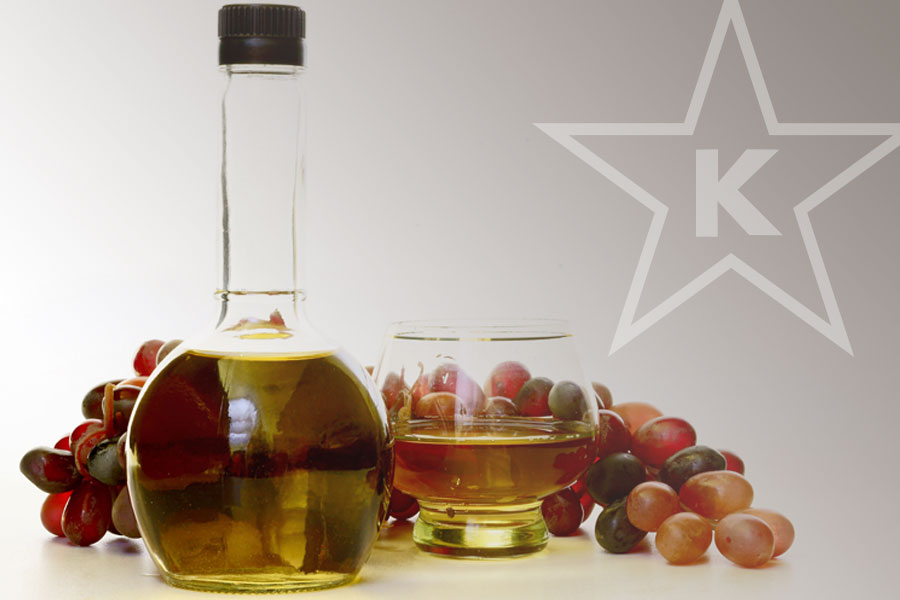
Balsamic Vinegar: Sour Grapes or Sour Sweet Success
Winter 2017
Vinegar is one of nature’s most unique and versatile products. Folklore maintains that vinegar was discovered quite by accident, when wine was inadvertently left to sour. This resulted in the first batch of full-bodied wine vinegar. Indeed, the word ‘vinegar’ is derived from the French word vinaigre, which means sour wine. Euphemistically, the Talmud refers to a ne’er-do-well son of a righteous father as a Chometz Ben Yayin, “vinegar son of wine.”
Folklore aside, vinegar was well known in the time of Tanach. The Torah forbids a Nazir to drink wine vinegar or eat other grape and wine products. In Tehillim,1 Dovid Hamelech asked to drink vinegar when he said, “Vlitzmaie Yashkuni Chometz”. In Megilas Rus, Boaz’s workers dipped their bread in vinegar.2
The Hebrew term for vinegar, chometz (pronounced ch-oh-metz), is similar to the word chametz (pronounced ch-aw-maitz), leavened bread products. This etymological similarity underscores the correlation between […]

Kashrus in the Workplace
The new food trends that have been embraced by society at large have led to a similar preoccupation with food within corporate America. This development has obvious ramifications for the kosher consumer at the office. The following is a guide to dealing with kashrus issues in the workplace.1 While it is impossible to address all the kashrus issues that may arise, this article provides an overview. As with all halacha, when questions arise, one should consult his rav.
1) Eating in a Cafeteria Shared with Co-Workers Who Eat Non-Kosher – Food on a plate, may’iker hadin, may be eaten even when placed on a non-kosher clean table. The Baday Hashulchan2 notes that today, the general custom is to use a napkin (or a placemat or something of a similar nature) when eating on a non-kosher table, even if it is clean.3 Although, in many cases a “heker” is […]
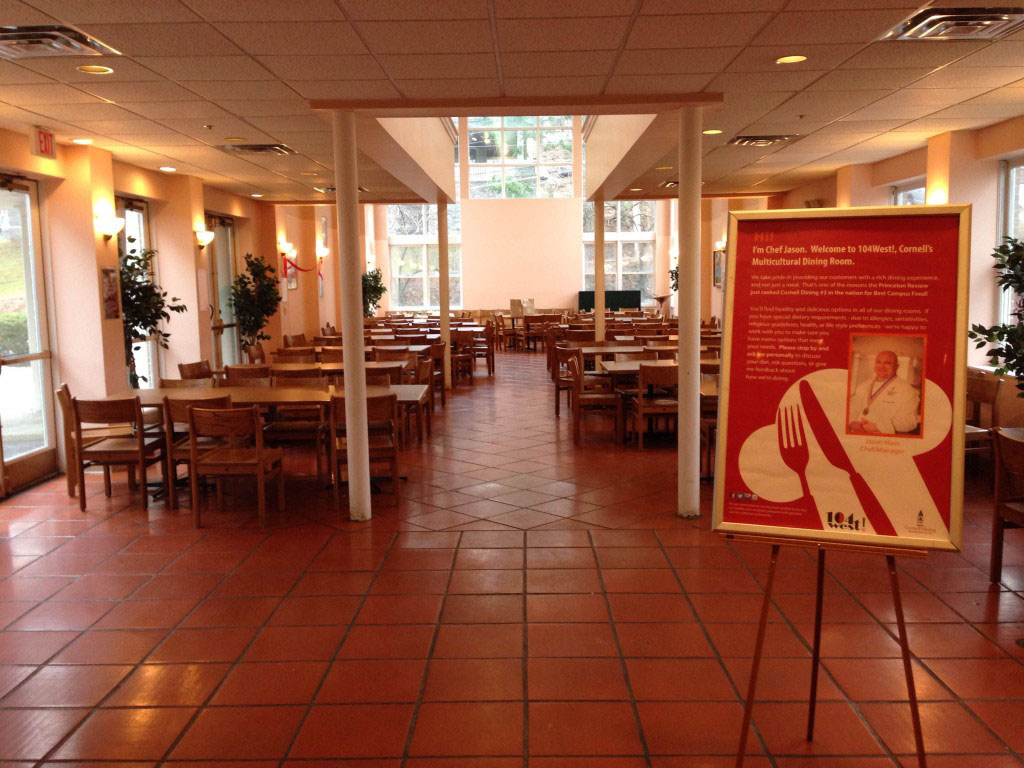
STAR-K Kosher Certification Goes Ivy League: Cornell University’s 104 West
The logistical challenge of feeding 400+ Cornell University students and staff members Rosh Hashanah dinner in “Trillium at Kennedy Hall” and an overflow in an outside tent–in addition to two daily meals throughout the school year– was one that STAR-K Kashrus Administrator Rabbi Mayer Kurcfeld was up for. Cornell’s 104 West! and It’s Kosher– the campus’ satellite kosher dining station at North Star Dining Room—is presently the sixth college kitchen under this campus kashrus expert’s supervisory guidance.
Cornell upperclassman Sam Baer, president of the college’s Center for Jewish Living, first approached STAR-K Kosher Certification in March, 2015, about the possibility of certifying an on-campus kosher kitchen. After making three 12-hour roundtrip drives from Baltimore to the Cornell campus in Ithaca, New York, the STAR-K and STAR-D logos were awarded in time for the Fall Semester.
One of the factors unique to certifying a college kitchen versus a restaurant is finding just the […]

Yoshon & Pas Yisroel Guidelines
Updated November 19, 2024
This page is dedicated in memory of Rav Yosef Herman הרב יוסף בן הרב יהושע זצ”ל, who is credited with singlehandedly raising awareness about Yoshon in America and throughout chutz la’aretz and renewing the klal’s commitment to this precious mitzvah. He undertook the responsibility to conduct extensive research about Yoshon products and to publish Yoshon updates year after year without remuneration. May all of our work be an aliyah for his neshama.
Latest Updates from the Kashrus Agencies
The Yoshon season is now in full swing. Updated product information can be found on yoshon.com or in the STAR-K Quick Reference Guide.
Disclaimers about Date Code Discrepancies
GOLD MEDAL and PILLSBURY
There is still some uncertainty regarding the expiration codes for these flours, as these can be processed at many different mills, with expiration codes varying between 12-18 months for All Purpose and Bread flour, and can be as […]
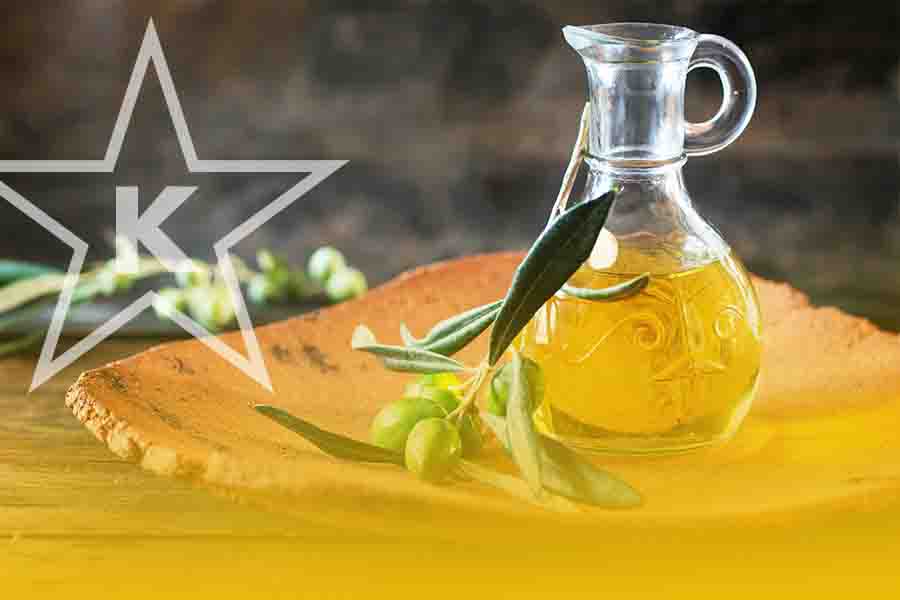
Bayamim Haheim Bazman Hazeh, Olive Oil: The Contemporary Industry of Antiquity
Olive oil – the liquid gold of the ancients – was touted for its nutritional, medicinal, and cosmetic value. As a fuel, olive oil illuminated the home; as a food ingredient, it was a feast to the palate. Olive oil production is one of the world’s oldest industries which has not changed much over the millennia.
Numerous olive oil brochures of the Mediterranean coastal region proudly claim that the olive oil industry dates back to over 5,000 years. This is demonstrated by the discovery of a 5,000 year old olive oil earthenware vessel in Turkey. Shemen zayis, as mentioned in the Torah, is one of the seven special species of Eretz Yisroel. The Torah requires the purest of pure olive oil, shemen zayis zach, to light the Menorah. Olive oil was an integral part of the service in the Bais Hamikdash. The olive branch is considered a symbol of peace […]

Oven Kashrus 101: Using the Same Oven for Meat, Dairy, Fish and Pareve
Spring 2016
If your kitchen is equipped with four ovens – for meat, dairy, pareve and fish – you don’t need to read this article. However, if you do not have such a luxury, you will find various halachic details enumerated below quite relevant.
There are numerous factors involved in an oven “going back and forth” between meat and dairy or using an oven for fish or pareve.1 They include the following:
The oven: Is it clean? Was it kashered? When was it last used?
The food: Is it liquid? Is it covered? When was it prepared?
Does the question arise to do the action l’chatchila (I can do this) or is it only okay bedi’eved (it already happened)?
NOTE: The halachos addressed are based on the psak of HaRav Moshe Heinemann shlit”a, STAR-K Rabbinic Administrator.2 This article addresses issues only involving regular gas or electric ovens. It does note address […]

Checklist for Approving a Shechitah Facility
Published Winter 2016
All the knives of the shochtim must be checked to ensure that they are sharp and without even the slightest ‘pegima’. This must be done before and after the shechitah.
There must be a sink with running water near the place of shechitah for the shochtim to sharpen their knives.
Animals may not be prodded to the shechitah box with a plug-in electric prod.
The head restraint in the box which holds the animal during shechitah must be calibrated so that the animal’s head cannot move during shechitah, but not so tightly that it affects the animal’s breathing.
A system must be in place, to track any animal that becomes a nevaila.
Animals may not be stunned at any time after the shechitah.
No hot water may be used on the animals anywhere in the slaughter house.
No electric current may be applied to the animal at any point, including when used to tenderize the […]

Dried Fruit: Nature’s Way of Wrinkling Gracefully
Published Fall 2015
It has been called nature’s candy and is a sweet source of nutrition whose popularity is on the rise. Commensurate with its growing popularity is its demand. In today’s global economy, the dried fruit trade literally spans the entire globe – apples from China, prunes from Bulgaria, figs from the Middle East, dates from Tunisia, raisins from South America, and of course apples, peaches, plums, raisins, figs, and dates from the good old U.S.A. Naturally, this growth presents a whole new set of challenges to kashrus agencies. How do they send a mashgiach to supervise date productions in Pakistan, raisin productions in Iran, or plum productions in Bulgaria? Let’s learn about this popular healthy snack alternative.
The Process
Fruit is dried through a process known as dehydrating, which removes enough moisture from the fruit to retard the growth of bacteria and mold while retaining the great taste and nutrients of […]
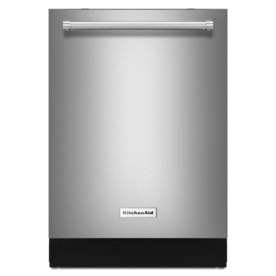
Kashering Dishwashers
Stainless steel, plastic or porcelain dishwashers which have plastic pumps, parts and rubber hoses cannot be kashered for Pesach or the rest of the year.

Kashering Countertops
Porcelain Enamel, Corian, Plastic/Formica, Silestone
CANNOT be kashered (for Pesach). Clean and cover for cold food. Cardboard or thick pad for hot food and utensils.
Granite, Marble, or Stainless Steel
Can be kashered by doing eruy roschim (purging through a hot water pour). Make sure that the material is a PURE granite, limestone, etc. Sometimes they are really “composites” which have plastic in them and therefore CANNOT be kashered.

Kashering Glass, Corning, Halogen or Ceran Cooktops
Passover
Electric – Kashering a Glass, Corning, Halogen, or Ceran electric smoothtop range for Pesach use is a bit complex. To kasher the burner area, turn on the elements until they glow. The burner area is now considered kosher for Pesach. However, the remaining area that does not get hot is not kashered. The manufacturers do not suggest covering this area as one would a porcelain top, as it may cause the glass to break. Real kosherization can be accomplished by holding a blow torch over the glass until it is hot enough to singe a piece of newspaper on contact with the glass. However, this too may cause the glass to shatter and is not recommended. As the area between the burners cannot practically be kashered, it would be wise to have a trivet on the open glass area to move pots onto. In addition, it would be wise to […]

Pluto and the Tur’s Jewish Calendar Cycle
http://www.thelakewoodscoop.com/news/2015/09/pluto-and-the-turs-jewish-calendar-cycle.html
http://matzav.com/pluto-and-the-turs-jewish-calendar-cycle/
http://baltimorejewishlife.com/news/news-detail.php?SECTION_ID=1&ARTICLE_ID=64235
“New Horizons” (NASA’s Mission to Pluto) recently came within 7,800 miles of Pluto and brought much attention to this dwarf planet that at any given time is between 2.66 billion and 4.68 billion miles away from Earth.
As we begin Rosh Hashanah, 5776, which will mark the beginning of the final year of the 304th nineteen year cycle since Brias Haolam (the creation of the world), it is interesting to note the amazing similarity between the amount of time it takes Pluto to orbit the the sun and the Jewish Calendar cycle based on 13 – nineteen year cycles found in the Tur (Orach Chaim Siman 428).
The Tur’s chart is based on a 247-year cycle and it takes Pluto about 247 years to orbit the sun.
This is the Tur’s 247-year calendar found in Orach Chaim, Siman 428, in Hilchos Rosh Chodesh. Note the marks we have added […]

Year-Round Money Saving Tips and Strategies
Published Winter 2014
With a little forethought and planning, you can implement some helpful year-round money saving tips in anticipation of Pesach.
To assess your budget, ask yourself:- What do I typically spend on groceries per month?
– What did I spend for Pesach last year?
– What are the specifics of this year’s Pesach plans?
– Will I be eating meals at home or eating out?
– Will I have more expenses because I am entertaining guests?
– What can I afford this year?
– How can I cut back on expenses a month or two prior to Pesach?
– What can I live without?
Decide on your menu, taking into account where chol hamoed falls out on the calendar, as well as fleishig/milchig meals. Be sure to make a list before you go shopping. Hopefully, you can refer to your post-Pesach notes from the previous year to remind you of your ever-changing Pesach needs. These could include:
– Number of boxes of matzah, matzah meal, cake meal, and potato starch used
– Number of bottles of wine needed
– Popular brands
– Amount of milk used
– Amount of chicken used
– […]

 STAR-D
STAR-D STAR-S
STAR-S